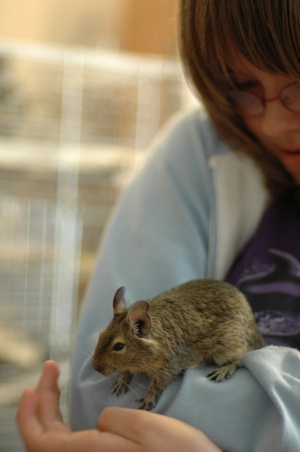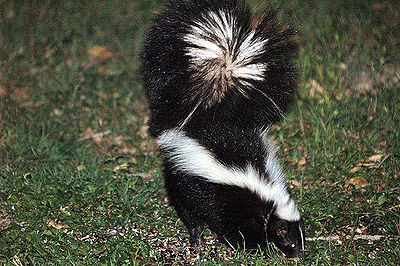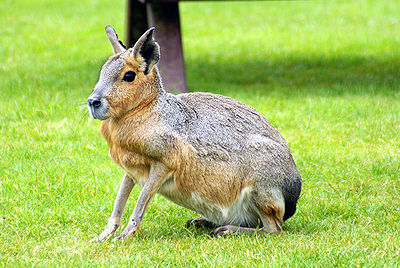Kinkajous are also known as Honey Bears because they love to eat honey right from bee nests.
Their native habitats are the different types of forests of Central and South America. There the kinkajous spend their time in trees which produce a variety of fruits such as mango, guava, pineapple, banana and more. They sometimes dine on plants, flowers and insects.
Depending on the species, kinkajous can range in size between 16-25 inches with their long tails adding another 15-20 inches. Weight is up to about 8 lbs. Life span is usually 20-25 years. The kinkajou’s prehensile tail helps them climb. While they may look like small monkeys, they are part of the family of raccoons, coatimundis and more.
It should be remembered that kinkajous are wild animals and should be hand-raised as babies. They can be messy with their eating habits and can be territorial with food. Hand feed as often as possible. They are extremely difficult if at all possible to house train and usually choose their own favorite spots.
Kinkajous have a wide variety of vocalizations – chirping, whistling, yelping like a dog, loudly shrieking and more. Since they are nocturnal animals, they can be loud at night.
A kinkajou’s cage should be quite large, at least 4 feet wide, 6 feet tall, 6-8 feet long. Equipment for the cage includes sturdy ropes and branches, shelves, all for climbing. A hammock can be suspended in the cage for sleeping. Heavy bowls that can’t be easily moved should be provided for food. Water bowls become too dirty, so a water bottle attached to the cage is best. Make sure your kinkajou knows how to sip from the bottle.
There is no commercial food available for kinkajous. In captivity their diet consists of a variety of fresh fruits and veggies – bananas, mangoes, grapes, pomegranates, pineapple, melons, kiwis, figs and so on. Avoid strawberries, citrus fruits, avocadoes, dairy products, chocolate and caffeine as these can harm your pet.
Kinkajous have little odor. They can be very playful and can pounce when you are unaware. Keep in mind that they are still wild animals and if upset, can bite and scratch. Their night habits cannot be changed and trying to do so can cause unwanted behavior.
Kinkajous are not a pet for everyone. They require a large enclosure as well as several hours of playtime out of the cage. Be sure you have the time and the knowledge to care for such a pet.
Before acquiring a kinkajou as a pet, make sure it comes from legal traders. Check the laws in your community about keeping exotic pets.



